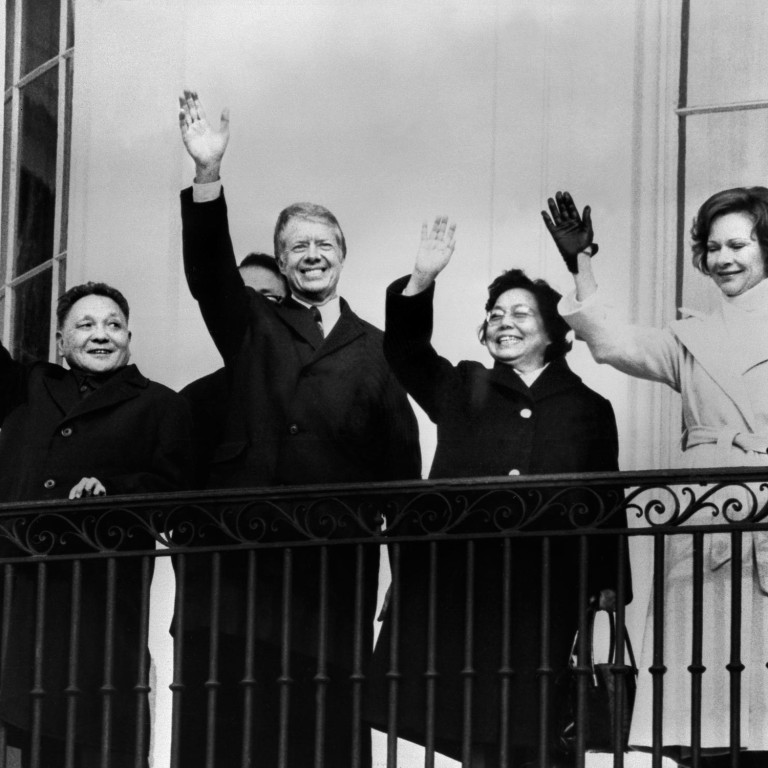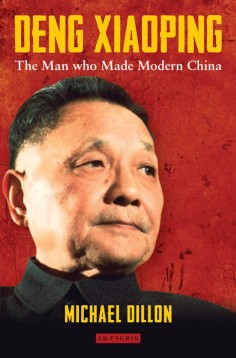
Book review: Deng Xiaoping: The Man Who Made Modern China, by Michael Dillon
Statesman Deng Xiaoping's grit and organisational skill made him one of China's most effective leaders. His four Singapore-inspired reforms - in farming, industry, defence and technology - transformed the mainland during the 1980s, paving the way for today's mega-state.
by Michael Dillon
I.B. Tauris


Too bad that just a decade after Deng announced his reforms, he was denounced as the monster responsible for smashing the 1989 Tiananmen democracy movement. The stigma remains, but his notoriety is overblown, according to modern Chinese history expert Michael Dillon.
"Deng was an old military man who had not hesitated to take life-and-death decisions during wartime, but his track record in power speaks of a man who valued consensus, rather than unnecessary conflict, and who certainly did not want a repetition of the violence and persecution of the Cultural Revolution years," Dillon writes.
But Deng can't be cleared of blame for the carnage: he should have been better informed and might have been rash, Dillon adds.
"However, the responsibility for the military intervention and the deaths lies primarily with his duplicitous and manipulative colleagues - [premier] Li Peng and [president] Yang Shangkun of the central government, and [party secretary] Li Ximing and [mayor] Chen Xitong of the Beijing Communist Party Committee," he writes. Strong words.
Deng was born in 1904 in Sichuan province, the son of a middle-class landowner. He studied and worked in France and Moscow; before his 1926 return to China, he was converted to the communist cause. After joining Mao Zedong's revolt as a strategist, Deng made his name in the 1934-35 Long March when Communist troops dodged their Nationalist pursuers. He played a key part in resisting the Japanese occupation then spearheaded the 1948-49 campaign that ousted Chiang Kai-shek's Nationalists.
The Communist Party duly seized power and Deng soared through its ranks, becoming general secretary in 1956.
During the Cultural Revolution, however, Mao turned, riled by another, alleged, Deng trait: opportunism. Deng was exiled to Jiangxi province for re-education. Yet despite the humiliation he "was not disposed to brood and rapidly recovered his optimistic and positive approach, the ability to bounce back for which he was later to become renowned", Dillon writes.
Deng's resilience proved vital: he was purged three times.
Dillon's verdict on the appealingly modest comeback king, who succeeded Mao as de facto party leader in 1978, is typically measured. Yes, Deng merits credit for the futuristic cities, the special economic zones and increasingly prosperous populace, Dillon writes. But, he adds, Deng's legacy also includes strained political structures and restricted freedom of expression. Dillon's assessment, which draws on "recently released Chinese sources", may be too kind: according to CNN, during Deng's last five years of power, almost all dissidents were jailed or exiled, suggesting the "paramount leader" was a tyrant at heart.
Another possible beef with Dillon's tract is the lack of juicy Deng quotes. Even his classic maxim about getting rich being glorious misses the cut, which seems a big omission because the quote evokes his trademark devotion to growth.
For the Chinese Communist Party, Deng, who died in 1997, remains an icon. Emerging from a summit at the party's summer retreat after tightening his grip on power, current President Xi Jinping was hailed as the new Deng Xiaoping, Dillon writes.
Deng's reputation seems on the up, but Dillon's biography raises the question of whether Deng is the best China can do, given his at best middling record on human rights. Worse, his chief feat - epic economic success - comes at a cost that Dillon has overlooked: environmental disaster.

